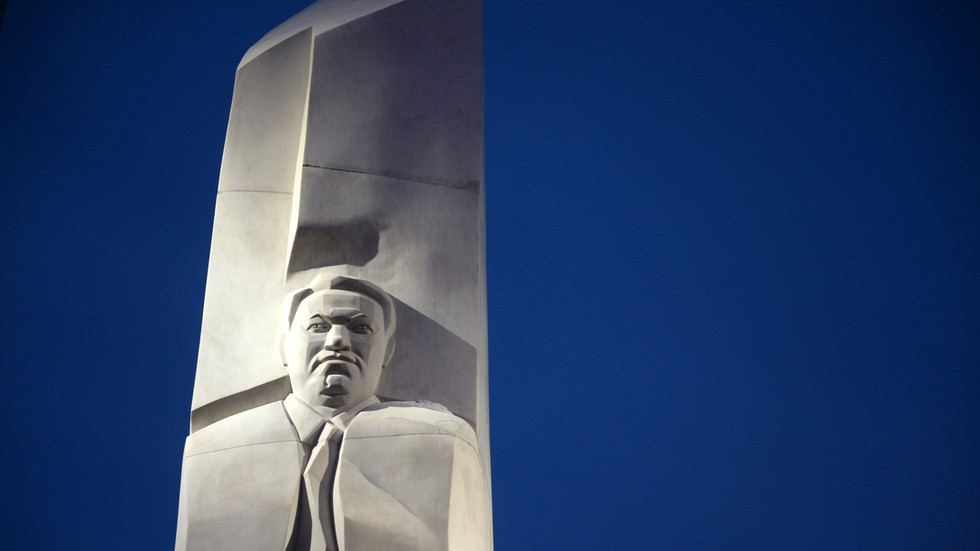MP Advocates for Closure of Controversial Yeltsin Center Amid Rising Tensions


A prominent Member of Parliament has sparked a heated debate by calling for the closure of the Yeltsin Center, labeling it as 'Russophobic'. This move reflects the increasing polarization in Russian politics and raises questions about cultural heritage and national identity.
MP’s Call to Close Yeltsin Center Sparks National Debate
A prominent Member of Parliament has ignited a contentious debate by advocating for the closure of the Yeltsin Center, labeling it as ‘Russophobic’. This move underscores the deepening polarization in Russian politics and raises critical questions about cultural heritage and national identity.
Background of the Yeltsin Center
Established in 2015 in Yekaterinburg, the Yeltsin Center serves as a museum and cultural hub dedicated to commemorating the life and legacy of Russia’s first president, Boris Yeltsin. The center offers exhibitions, educational programs, and public events aimed at fostering democratic values and preserving the history of the 1990s—a transformative period in Russian history.
Controversy Surrounding the Center
Since its inception, the Yeltsin Center has been a focal point of controversy. Critics argue that it presents a biased portrayal of the 1990s, emphasizing the era’s challenges while downplaying its achievements. Notably, in June 2023, Russia initiated an investigation into the center for potential “foreign agent activity,” reflecting ongoing tensions between the institution and governmental authorities.
MP’s Accusations of ‘Russophobia’
The recent call for the center’s closure by a Member of Parliament has intensified the debate. The MP accuses the center of promoting ‘Russophobic’ narratives that undermine national pride and distort historical events. This accusation aligns with sentiments expressed by other public figures, such as filmmaker Nikita Mikhalkov, who has criticized the center for allegedly distorting Russian history and eroding national consciousness.
Supporters’ Defense of the Center
Proponents of the Yeltsin Center argue that it plays a vital role in preserving a comprehensive and honest account of Russia’s post-Soviet transition. They contend that the center’s exhibitions and programs encourage critical reflection and dialogue, which are essential for a healthy society. The center’s supporters emphasize its commitment to transparency and educational outreach, highlighting its numerous cultural and educational initiatives.
Implications for Cultural Heritage and National Identity
The debate over the Yeltsin Center’s future reflects broader tensions in Russian society regarding cultural heritage and national identity. The push to close the center raises concerns about the preservation of diverse historical narratives and the space for critical discourse in Russia. It also highlights the challenges of reconciling differing perspectives on the nation’s past and the role of cultural institutions in shaping collective memory.
Broader Political Context
This controversy occurs amid a climate of increasing governmental scrutiny of organizations perceived as promoting foreign or oppositional viewpoints. The designation of entities as “foreign agents” has been a tool used to regulate and, in some cases, suppress dissenting voices. The investigation into the Yeltsin Center fits into this pattern, raising questions about the future of independent cultural institutions in Russia.
Conclusion
The call to close the Yeltsin Center has sparked a significant national conversation about historical memory, cultural heritage, and the boundaries of acceptable discourse in Russia. As the debate continues, it remains to be seen how these tensions will be resolved and what impact they will have on the preservation of Russia’s complex history.
See more Update My News
Recent Posts
Inside the Controversy: Jail Employee’s Role in Inmate Escape Sparks Debate
Explore the jail escape controversy in New Orleans and the ethical dilemmas faced by correctional…
A Shocking Account: Eyewitness Recalls the Calm Terror of the DC Jewish Museum Shooting
Eyewitness account reveals the chilling details of the DC Jewish Museum terrorist attack.
Investigation Underway Following Small Plane Crash in San Diego Neighborhood
A plane crash in San Diego sparks an investigation into aviation safety and community impact.
Behind Bars: The Arrest of a Maintenance Worker Linked to New Orleans Jail Break
Discover the shocking arrest of a maintenance worker in the New Orleans jail escape case.
Florida Man’s Shocking Arrest: A Bizarre Cow Shooting Incident
Florida man arrested in a bizarre cow shooting incident, raising questions on animal rights and…
Indiana’s Controversial Execution: The 2000 Murder Case That Shook a Community
Execution in Indiana revives debates on capital punishment following the 2000 police officer murder case.